Easy Tricks To Squirrel-Proof Your Garden
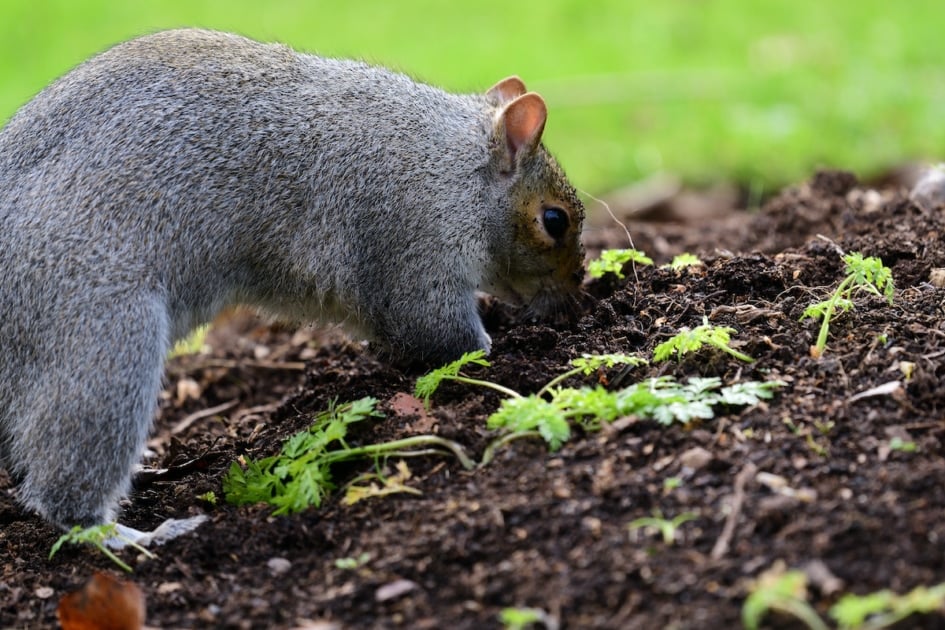
The ripe tomato on the vine has a bite taken out of it. The carrots are dug up. The flower pot has craters in the soil and the plants are lying on the ground. All signs point to … squirrels.
While they’re cute, squirrels can be a nuisance to gardeners, who have long battled with them. And while no single method of deterrent has won decisively, because squirrels are masters of adapting and learning, combining two or more methods can mean the difference between saving your plants or throwing in the towel.
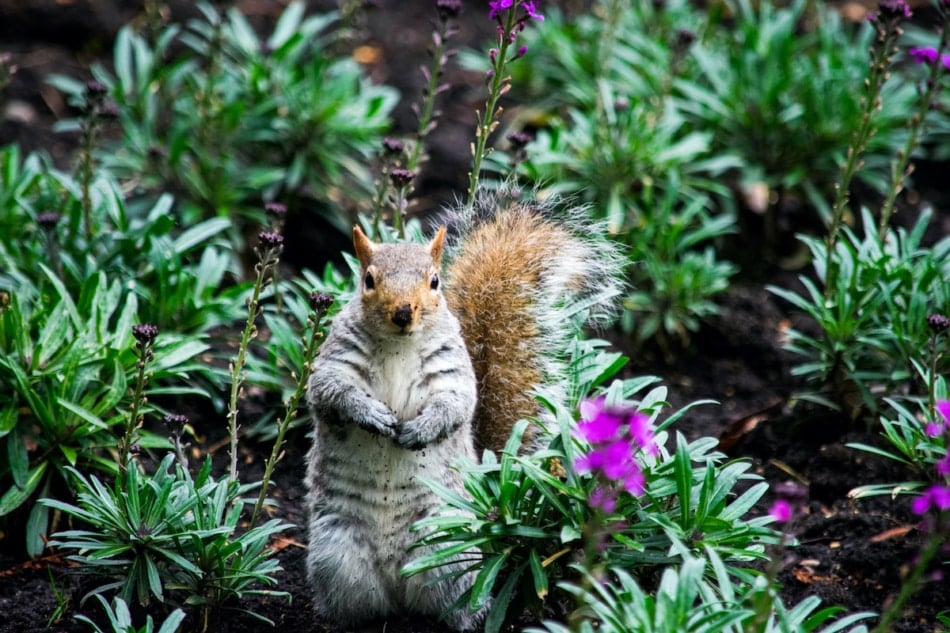
For strategizing, it helps to know a few truths about squirrels in advance: they dislike strong scents, have jumpy dispositions, and fear not having an escape route. With that in mind, here are some squirrel proofing methods to try.
Squirrel-Proofing Methods
Hot Chili Pepper
One of the easiest natural methods is to apply hot pepper to your plants. The capsaicin (the “heat” in the pepper) is the deterrent, both in smell and taste. Sprinkle the flakes around the soil of plants that need to be protected, including potted plants. You can also sprinkle cayenne pepper directly on plant leaves.
A foliar spray is another option. Mix a small bottle of Tabasco, a gallon of water, and a few drops of dishwashing liquid, which helps the hot sauce cling to the foliage, and use a garden sprayer or a standard spray bottle. First, spritz the solution on a single leaf to test how it affects the plant. (The solution shouldn’t affect it but it’s always a good idea to test.) Foliar sprays are best applied in the early morning or early evening to avoid as much contact with beneficial insects as possible.
Most everyone has hot chili peppers in the pantry, but if not, they are readily available in the spice aisle at any grocery store.
A word of caution about hot pepper solutions: wear protective gear, such as gloves and eye protection, while preparing and applying solutions, and do not touch your eyes or rub your skin without washing thoroughly. Do not apply hot pepper spray if it is windy.
Essential Oils
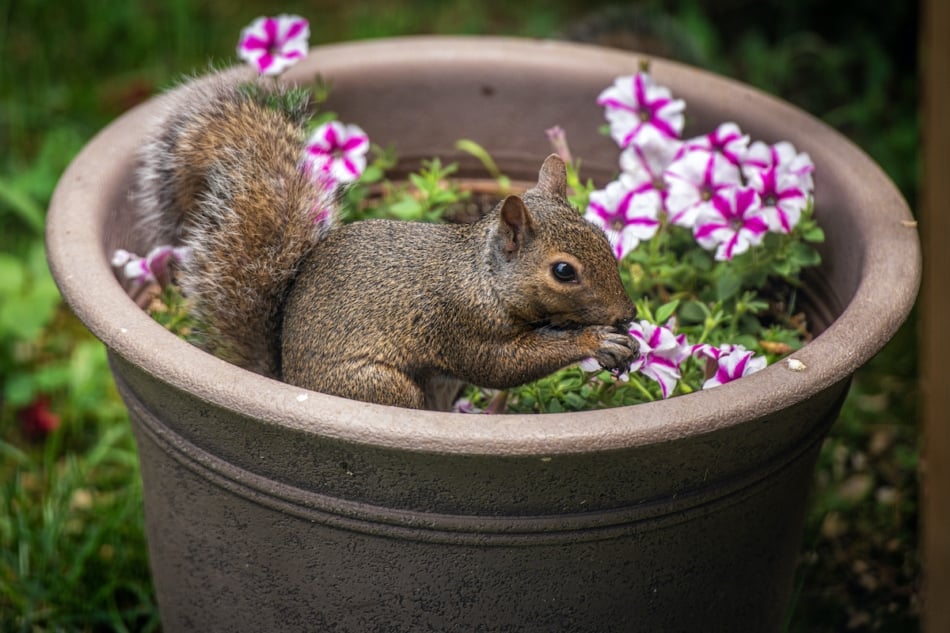
Essential oils in scents squirrels dislike—peppermint, geranium, clove—are also effective deterrents. Simply soak cotton balls in the essential oils and place them in shallow trays (such as jar lids or saucers) around the garden or directly in planters. Many commercially sold deterrents use these essential oils in their formulas so if you go this route, simply spray around the garden hardscapes (not on plants directly). A word of caution about essential oils: Keep away from pets and children.
Garlic
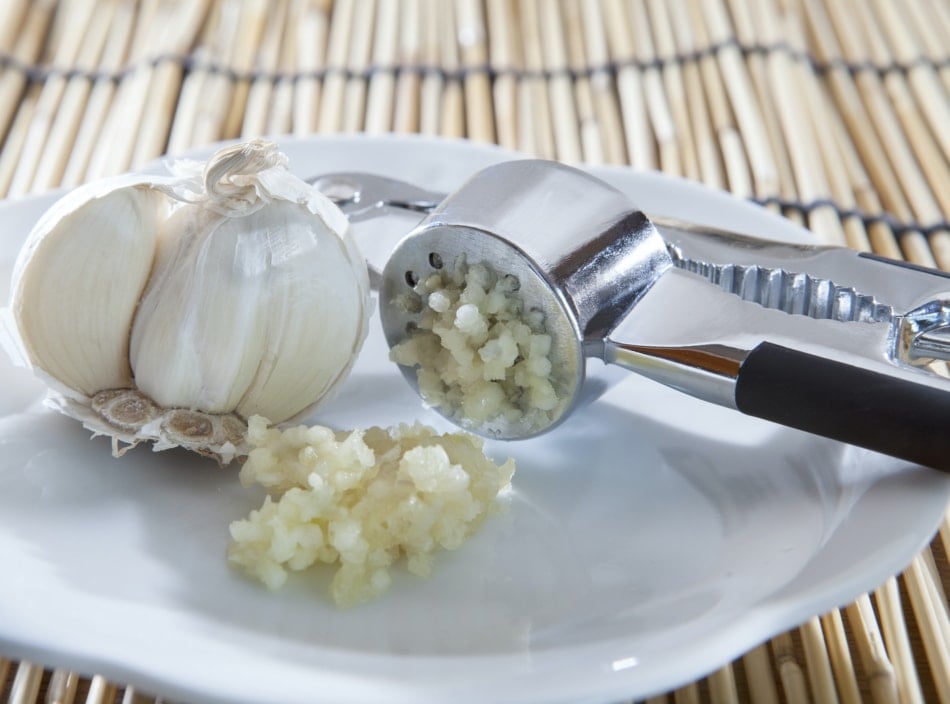
While you might enjoy the scent of garlic while cooking, squirrels are not fans of the smell or taste. Mix some chopped garlic with equal parts water and vinegar. Let this concoction sit for a few days so the flavors can combine, and then spray it on fences, stakes, and flower pots, but not directly on the plants as vinegar can harm them. Label any container holding leftover spray and keep it in a safe location away from children and pets.
You can also purchase commercial garlic deterrents online or at most garden supply or hardware stores. These are commonly used for insect pest management, but they can also help ward off squirrels, too.
It’s important to remember that the effectiveness of any spray will fade and should be reapplied every few days, and always after rain.
The Old Soap Trick
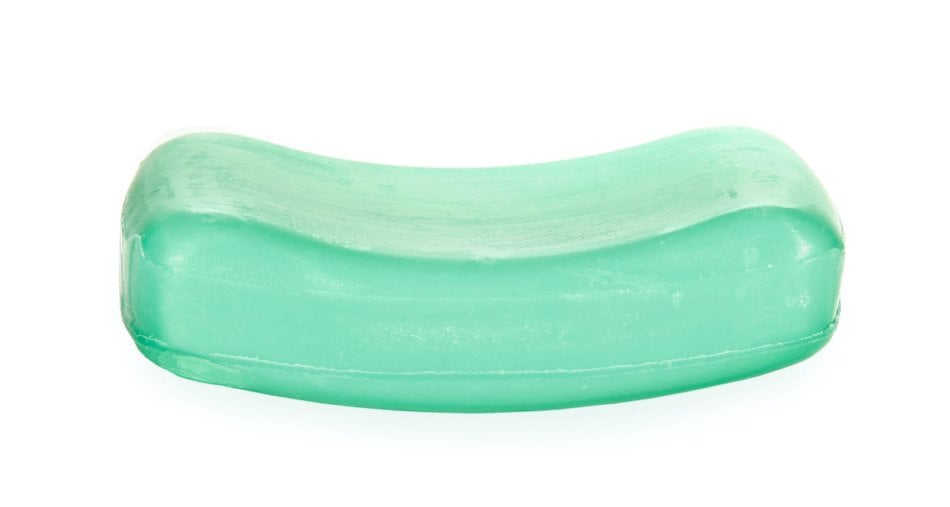
A Farmers’ Almanac trick says to grate Irish Spring soap and sprinkle it around your garden plants. Squirrels and deer steer clear as they don’t like the scent.
Create Physical Barriers
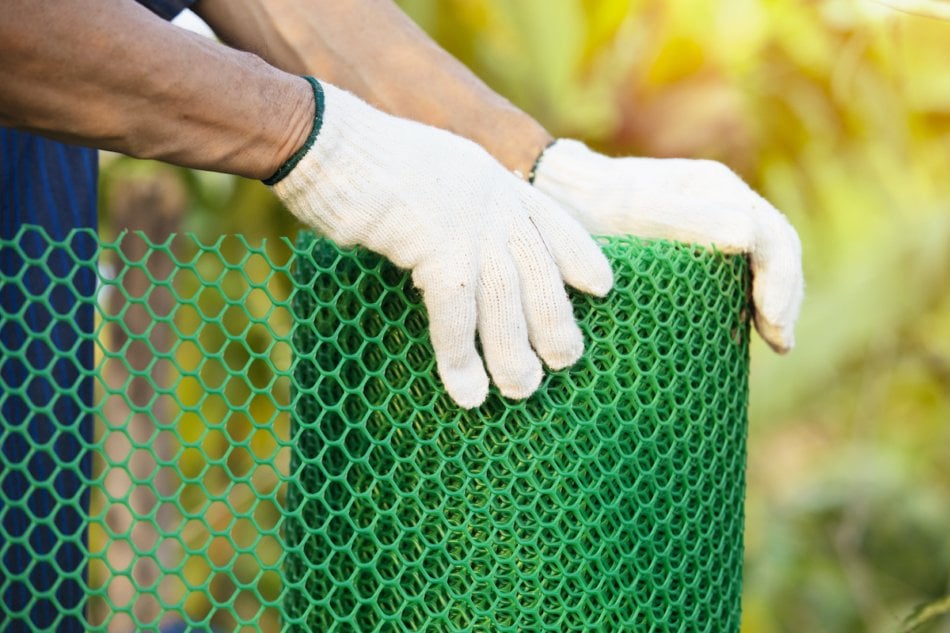
Your local hardware store likely carries hardware cloth, which is a mesh cloth sold in rolls and an effective method to protect potted plants, individual plants, or sections of the garden where squirrels have been digging. Lay the mesh flat over soil and then cover it with more soil or an unfriendly-to-squirrels mulch, such as gravel or pebbles.
Along the same lines, aluminum foil can be placed on top of the potting soil in potted plants. Simply poke holes through the foil for each plant, seed, or bulb.
Chicken wire can be fashioned into domes or cages around susceptible plants, either individual plants or entire rows. Because squirrels will dig to get to what they want, bury the edges of fashioned cages 6 inches below the surface to prevent burrowing.
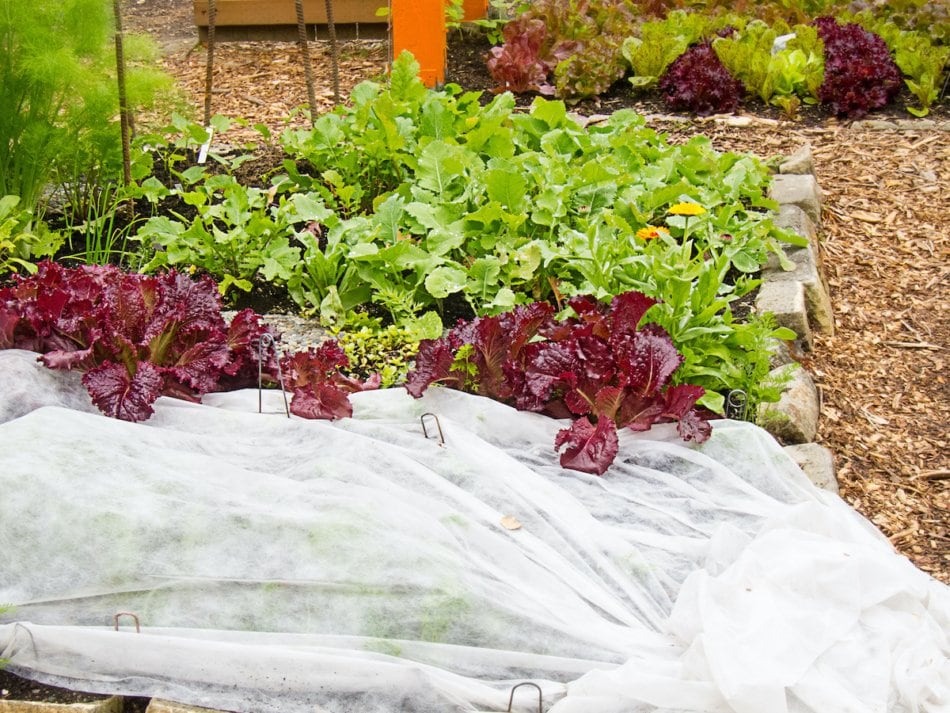
Lightweight fabrics used for frost and insect protection, called floating row covers, are another way to ward off squirrels as they won’t risk getting trapped underneath the tunnel or tangled in the fabric.
It’s important in the summer to use the lightest weight fabric available to help regulate the temperature and allow the maximum amount of sunlight in for plant growth. If the plants covered require a pollinator to fruit, the row cover would need to be removed daily.
Online seed stores and garden supply centers generally stock row covers, which can be expensive initially but may be reused for years with proper care and winter storage.
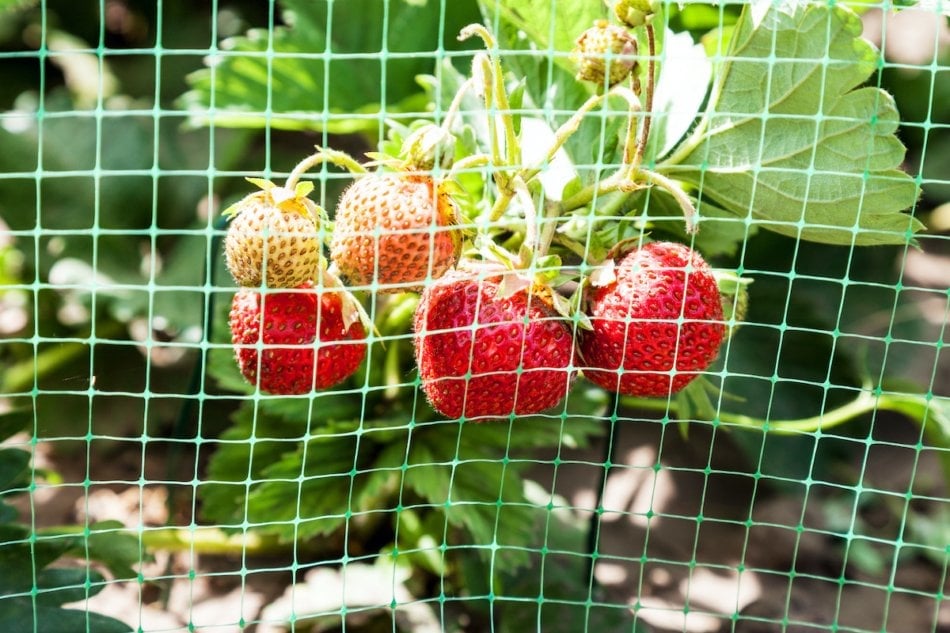
For fruit or nut trees and shrubs, protective netting is a good option. The taller and wider the tree or shrub, the less practical this option becomes not only in price but in the application. Netting is sold at garden centers and online. Small rolls are inexpensive, while large net blankets can be pricey. Netting, however, can be reused year after year.
A more recent development is the use of squirrel fence spikes. When deployed, these strips of bristles look like a giant, metal hairbrush, while their plastic cousins are beds of inverted cones, pointy side up. Attach the barriers to roofs, walls, and fences, and combine with other repellents. They’re readily available online, and fairly inexpensive.
Electronic Devices
Electronic, solar, or battery-operated devices to ward off squirrels are available online and in some big-box stores. The most common are devices that emit ultrasonic soundwaves at frequencies that bother squirrels. Some include flashing lights for an added “scare” tactic, and some devices offer extras such as predator noises. The high-pitched sounds also tend to repel other animals, usually listed in the descriptions, including cats and dogs, so keep that in mind.
Motion-activated sprinklers also are effective. The sudden movement and sound followed by a spray of water could frighten off a squirrel, although it’s smart to move the sprinkler every couple of days to keep the squirrel on its toes in this war of attrition.
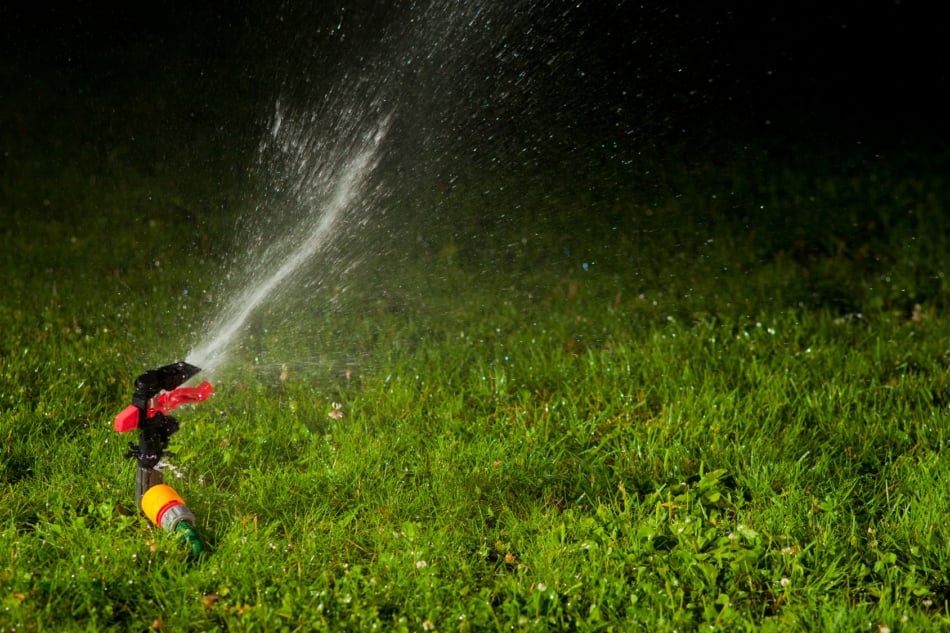
The more complicated the device, the higher the price. Simple ones run under the $35 mark, while more sophisticated repellers are more than double that amount. According to the size and shape of the yard and garden, multiple devices may be needed.
Plant What They Don’t Like
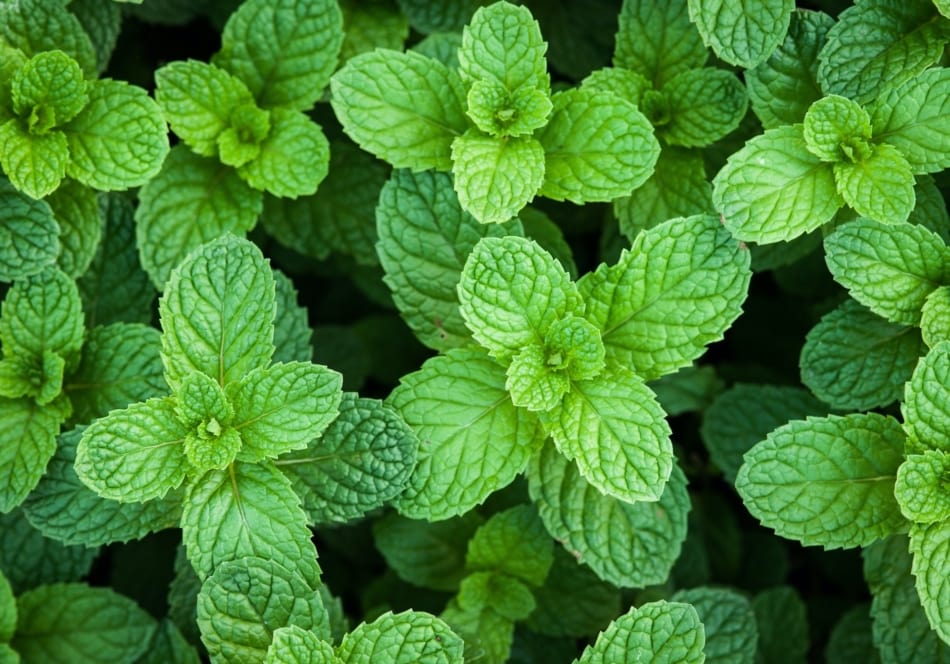
If you’re just starting out with your garden, and want to avoid a future squirrel issue, you can plant varieties of plants and flowers that squirrels avoid, such as those with strong scents: alliums, mint, catnip, geranium, hyacinth, and daffodils. Interplanting those varieties with plants you know they do like can help provide a natural barrier to discourage visits.
Do you have any tried-and-true squirrel proofing tips in the garden? Share them with us in the comments below.

Janine Pineo
Janine Pineo has been gardening all her life in Maine and writing about it for more than two decades. More of her writing can be found on her website, GardenMaine.com.


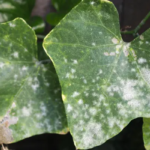

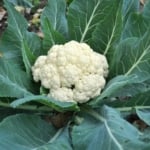

we have been having squirrels stealing our apples. they stripped some trees clean. hopefully, I can find a way to keep them away for good. I never even knew that squirrels like apples so much. will try these suggestions!
Squirrels love to dig in freshly planted spots. So, when my squirrels dug up my newly planted creeping phlox, I placed four red flags on wire stems on each side of each replanted phlox. Squirrels don’t like those flags, and the wires get in their way. I also solved my potted plant digging problem by sprinkling cayenne pepper in each pot. I still get the occasional oak tree coming up in one or more pots, but I stopped having potting mix all over the front porch. They learned to bury their acorns somewhere else.
Great tips! We appreciate you sharing with us!
We lost all of our tomatoes last year due to squirrel Armageddon. It was the first time in my 70 years of life that I have had such an attack on my garden. Much of the pests, not neighbors, we have been able to control but the little rodents just don’t have any respect for a garden that feeds those who cultivate it.
We’ll be trying something new this year. If it works, I’ll let you know and if you’re feeling squirrelly or a little nutty let me know if you have anything new to add by all means let everyone know.
Best of luck! We always recommend trying multiple layers of defense, they are smart and sneaky!
Has anyone tried a cat. I’m happily feeding stray cats. The squirrels and rabbits are keeping their distance. Prior to the cats hanging around the squirrels ate the wiring hub on my Pathfinder. The vehicle was totaled. I was also unable to feed the birds because the squirrels would get to the food no matter what kind of feeder I was using. Feeding a few cats is a small price to pay for keeping the squirrels away from the house and garden.
Hot pepper in the bird seed is a great deterrent! I purchased a bottle of Cole’s Flaming Squirrel Seed Sauce, I was able to mix it into the birdseed. The squirrels did not like it one bit. Until then they had been chewing through my feeders and eating all the birdseed they could enjoy.
Squirrels don’t like the smell of baby powder – before planting bulbs, shake them in a small bag of it to coat.
I just covered some of my mangoes with organza bags. I think I’ll try hanging baskets with mint in them.
I sprinkle cinnamon around the beds. It also helps with plant diseases.
I’m deathly allergic so I would never do this.
I buy plastic forks any color and put several in each pot with handle in the dirt, tines sticking up–ouch to the squirrels.
Yes, that’s a good tip for most garden pests. Thanks for sharing!
Didn’t work with my persists t squirrels!
I followed every recommendation last year to no avail. I lost all of my carrots to squirrels. They dug them up and age them. 2022 was a particularly difficult season dealing with rabbits and squirrels. I live in the city; however, there is plenty else for them to forage on our property. I will attempt a homemade version of a row cover for the carrots this year, coupled with planting less attractive to squirrels plantings.
That works REALLY well in hanging baskets!
I NEED TO TRY SOME OF THESE TO DETER THE SQUIRRELS AS ONLY BIRD NETTING SEEMS TO BE KEEPING THEM OUT OF MY CONTAINERS. FOR 2 YEARS THEY HAVE DESTROYED MY GARDEN. THANK YOU FOR THE SUGGESTIONS.